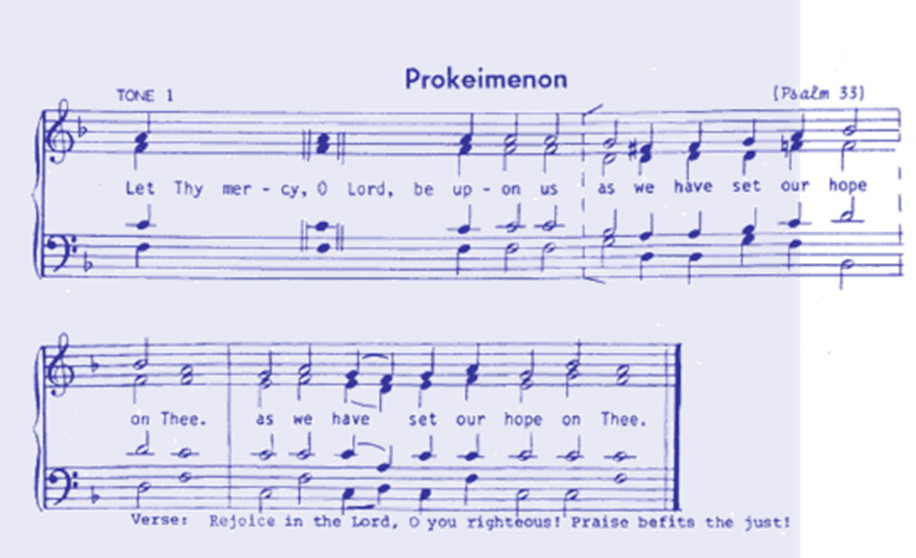PROKEIMENON

PROKEIMENON (GR prokimen; plural: prokeimena)- The Greek word implies something that is "set before" or "introduces." The prokeimenon was originally an entire Psalm that served to "introduce" the reading f Scripture that followed it. One verse from the Psalm was selected as the refrain to the chanting of all the others. In current liturgical use, the prokeimenon is reduced to the refrain and one to four verses of the Psalm being employed. At the Divine Liturgy, the prokeimenon is proclaimed after the singing of the Trisagion hymn to introduce the apostolos (Epistle) reading. Prokeimena are not selected based on the personal preference of the priest, reader, or choir director. Rather, the Sunday and weekday prokeimena are taken from the Octoechos, using the particular tone of the day. Many feasts also have their own prokeimena.
PROKIMENON
PROKIMENON (GR pl. Prokimena) - "ce qui est placé avant") - Versets des psaumes, habituellement chantés en alternance avant une lecture biblique (durant la Divine Liturgie, avant l'Épître). À l'origine, le prokeimenon était un psaume entier qui servait à "introduire" la lecture des Écritures. Dans l'usage liturgique actuel, le prokeimenon est réduit au refrain et un à quatre versets des psaumes; il est proclamé après le Trisagion (Orthoflash, le 24 août 2017). Le prokimenon est chanté en style responsorial (air ou chant alterné entre deux chœurs ou entre un chœur et un soliste). Les Prokeimenon ne sont pas choisis en fonction des préférences personnelles du prêtre, du lecture ou du directeur de la chorale. Les prokeimena du dimanche et du jour de la semaine proviennent de l'Octoèque, le recueil d'offices et prières classés suivant l'ordre des huit tons liturgiques. Plusieurs fêtes ont aussi leur propre prokeimena.